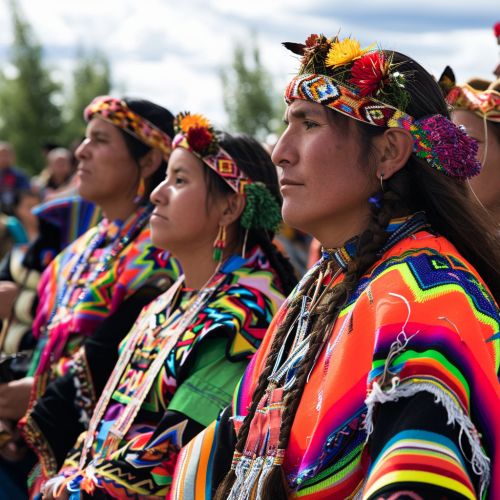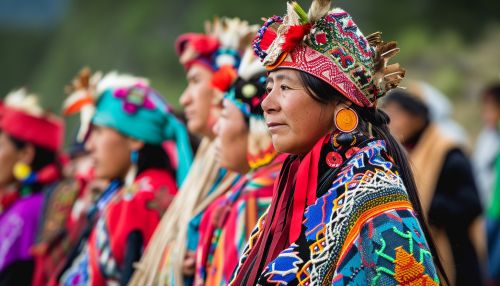Mapuche people
Introduction
The Mapuche people are an indigenous population primarily inhabiting the southern regions of Chile and parts of southwestern Argentina. Their rich history, culture, and traditions have significantly influenced the social and political landscapes of these regions. The Mapuche are known for their resilience and resistance, particularly during the Arauco War against the Spanish colonizers in the 16th century.


Etymology
The term "Mapuche" is derived from the Mapudungun words "mapu," meaning "land," and "che," meaning "people." Thus, Mapuche translates to "people of the land." Mapudungun is the language spoken by the Mapuche, which is part of the Araucanian language family.
History
The history of the Mapuche people is characterized by a long-standing resistance against foreign invaders, starting with the Inca Empire in the 15th century and later, the Spanish Empire in the 16th century.
Pre-Hispanic Period
The Mapuche's ancestors, the Picunche, Huilliche, and Moluche, inhabited the region between the Itata River and the Chiloé Archipelago. These groups were primarily agricultural, growing crops such as potatoes, maize, and quinoa.
Inca Invasion
The Inca Empire attempted to conquer the Mapuche territory around 1470 but faced fierce resistance. The Mapuche managed to maintain their independence, marking the southernmost boundary of the Inca Empire at the Maule River.
Spanish Conquest
The Spanish arrived in the Mapuche lands in 1540, sparking the Arauco War, a long period of conflict that lasted for over two centuries. Despite facing a technologically superior enemy, the Mapuche successfully resisted Spanish attempts at conquest.
Culture
Mapuche culture is rich and diverse, with unique traditions, beliefs, and practices. Their worldview is deeply connected to nature and the land, which is reflected in their spiritual practices, social organization, and artistic expressions.
Religion and Spirituality
The Mapuche religion is animistic, believing in the existence of spirits in natural objects and phenomena. The most important deity is Ngenechen, the creator god. Spiritual leaders, known as Machi, play a crucial role in Mapuche society, performing rituals and serving as healers.
Social Organization
Mapuche society is organized into familial clans known as lof, each led by a lonko or chief. The lof are grouped into larger territorial units called rehue or aillarehue.
Art and Craftsmanship
Mapuche art is characterized by its intricate silverwork, textile weaving, and pottery. The Mapuche are particularly renowned for their silver jewelry, which plays a significant role in their traditional dress.
Contemporary Issues
Today, the Mapuche continue to face numerous challenges, including land rights issues, cultural preservation, and socio-economic marginalization. Despite these challenges, they remain resilient, advocating for their rights and working to preserve their culture and traditions.
